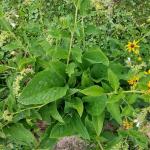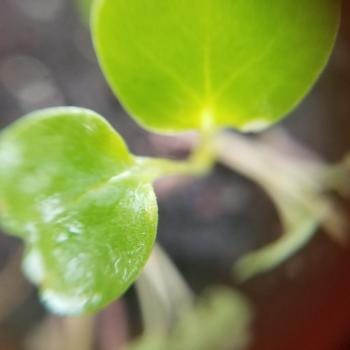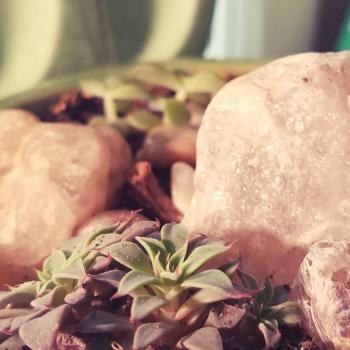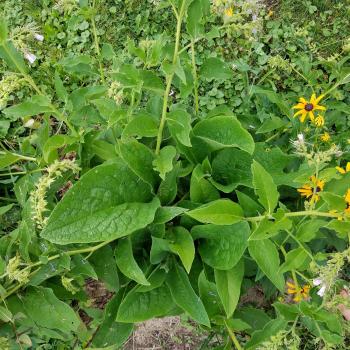I grow, harvest, and wildcraft my own herbs, which I would highly recommend to anyone who wants to get into herbalism. Working with the plants themselves is a spiritual devotion and will make your medicine much more powerful. I choose to use the word medicine in a radical way. As it stands, anyone who makes or prescribes medicine in the USA who is not a M.D. doctor is breaking the law. Our health is controlled by vast and powerful for-profit medical corporations who make the rules about who has access to medicines, prices, and insurance. We all know stories of people who were bankrupted by their medical bills, people who have no access to medical care, and people who spend hours and hours on the phone and in doctor’s offices each week justifying their access to prescriptions they need to survival.
In a world such as this, growing your own medicine is a deeply radical practice.
I’ve been studying herbalism for well over a decade now, and for a while I thought I might become a professional herbalist. I looked for schools where I could get certified and studied the laws surrounding herbalism. What I found out is that being a professional herbalist is mostly illegal. Unless you’re making pretty skin care products, or scented bath bombs actually making medicine is not okay, according to our government. At best herbalism is in a legal grey zone.
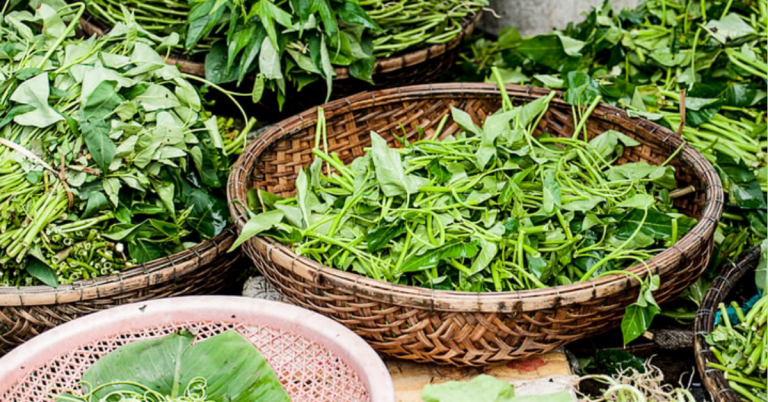
Once I heard a story about how the FDA confiscated an entire crop of Sassafras root, because it was “carcinogenic”. However, the compound that is carcinogenic is only pulled out of the plant by oil extraction. Sassafras is an essential component of food people eat everyday. It’s in root beer. You can go to the grocery store and get yourself a nice bottle of fancy root beer and swig back a delicious infusion of bubbly sassafras whenever you’d like. If an herbalist makes a sassafras tea to sell, that’s illegal and dangerous.
I stopped selling my herbal products a long time ago. I don’t do diagnoses or recommend herbs for money. I do this work as a labor of love and radical activism because taking our health into our own hands is a powerful act.
I still serve my community in that way, and I would ask you to consider if you want to serve your community as an Activist Herbalist, too. I have been called by the spirits to do this work, and to share the information I have in a public way. My herbalism is cheap, localized, effort intensive, and effective. I have worked to find local herbs that I can grow or wildcraft rather than ordering herbs online. This takes my health out of the supply chain. I started with less powerful herbs: tonic herbs, herbs that can be considered food, herbs that don’t have dangerous side effects. I spent years learning how to make tinctures, salves, syrups, teas, and decoctions. I learned that the hardest part is not the long process of growing, harvesting, and processing herbs. The hardest part of herbalism is getting people to actually ingest herbs and learn to accept that plant medicine is weird; different than tiny little pills you swallow and forget.
Local Herbal Sustainability and Resilience
I’ve had to leave more than one garden behind, and it’s like losing a part of my soul. I bond with the land where I grow my herbs, and I bond with the plants themselves. I am now in the third year of my newest garden, my 5th garden. Because I have seen how catastrophic it can be to lose one’s plants I am now in the middle of a new project where I am coordinating with people in my community to have them grow herb plants too.
I have a number of households who have agreed to participate in my herbal community project, and I have gone in and assessed each site and am working to grow stock that will blend with their microclimates. The goal is that within five years every herb I use will be in at least two places in our local community so that we can’t lose that genetic information. I am using my own yard as a nursery for these plants, This year I am excited to be breeding up seed crops of angelica, elecampane and calendula, as well as splits of a number of other herbs. If you do the work of Herbal Activism, I would recommend a similar practice. Start with this excellent book on the best practices for making your plants multiply.
When you grow your own seed stock you will have way more seeds than you could ever buy. Seed packets are tiny compared with what you can grow. If you’re serious about seed saving and storage, I would highly recommend this bible of seed saving. One of the easiest techniques is to learn what the seedlings look like and then just let the herbs self sow in your garden. Then in the spring all you have to do is choose which ones not to weed. The seeds will sprout where they are happiest to grow, and you will learn about the microclimates in your land or yard. I currently have calendula, poppies, dill, borage, parsley, and valerian plants that just popped up this spring and all I did was leave them where I wanted them. The best way to use this technique is to pay attention to what the seedlings look like when you do buy that first packet. Take pictures yourself, or just search the internets for images of the seedlings so that you don’t accidentally weed them with the things you don’t want.
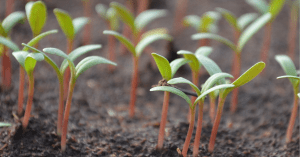
There are many health problems that can’t be helped with herbs. Sometimes the only way to survive is to navigate the medical systems. Sometimes the best way to be an activist is to be your own medical advocate. If you’re not familiar with Sick Woman Theory I highly recommend this article as some food for thought. Herbalism is not a panacea. It is however a powerful tool that we as the working poor and middle class people can leverage to make the lives of our families and communities better and more resilient.
Gerda sings me the song of the Walled Garden, where we grow and nurture the plants that have offered to nurture and heal us. I know she sings to the soul of many others. I stand with all of you who grow herbs, who make weird green messes in their kitchens on hot summer days, who wander through the woods carefully harvesting only what can be spared for human use; leaving lush stands of green life behind.
Let us work with the land to find balance and healing.
If you appreciate my work and would like to support my Herbal Activism practice, please consider signing up with a small monthly pledge over at my Patreon. Thank you.


